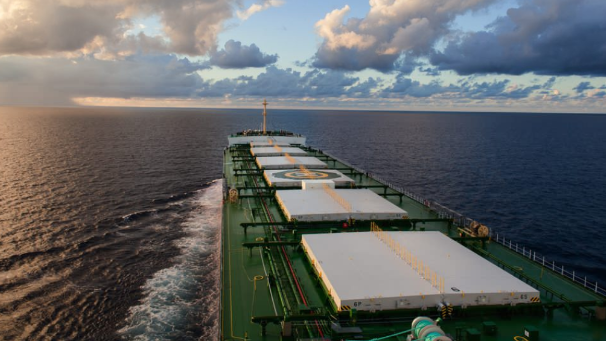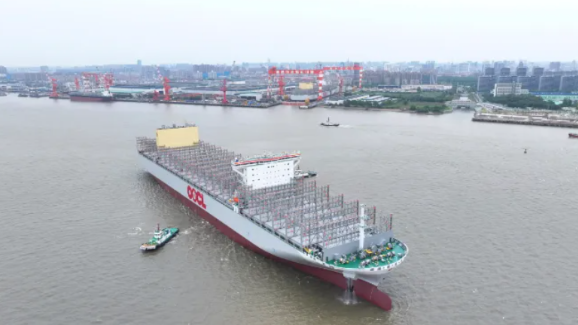Due to the intertwined influence of multiple factors such as the US tariff policy, the intensification of geopolitical tensions, and climate change, the operation of ports in Europe and the United States is facing unprecedented challenges.
On May 28 local time, Jacques van der Meilen, the CEO of the Port of Antwerp - Bruges in Belgium, issued a warning to the outside world that ports across Europe, including Antwerp, are Mired in severe congestion. Meanwhile, ports on the west coast of the United States are also preparing for the return of goods due to related factors, which has also raised concerns about congestion.
Congestion at European ports has intensified, causing heavy losses
From the data, it can be seen that the average waiting time at multiple ports in Europe has increased significantly. Van der Meilen disclosed that due to increased waiting times and supply chain disruptions, Belgian terminal operators, transportation companies and inland shipping companies have suffered a heavy blow. Take the Port of Antwerp as an example. The average waiting time for ships has sharply increased from 32 hours at the end of March to 44 hours in mid-May, with an increase of as high as 37%. Data from Dreury Maritime Consulting, a European company, further confirms this severe situation. The average waiting time at the Port of Hamburg in Germany has increased by 49%, and at the Port of Bremen, it has risen by 79%. Due to the uncertainty of tariff policies, all parts of Europe are facing bottlenecks, and it is not clear how long this situation will last. This undoubtedly casts a thick shadow over the port operations and logistics industry in Europe.
Demand has soared, the peak season has come earlier, and ports are under pressure
Previously, due to the uncertainty surrounding the United States' imposition of import tariffs on Chinese goods, the transportation of goods was largely postponed or rerouted. However, with the news of the 90-day tariff easing spreading, enterprises saw a sharp increase in the volume of goods transported in order to export quickly and seize the market opportunity first. This phenomenon directly triggered an early arrival of the transportation peak season, putting a heavy burden on European ports.
Coincidentally, the demand for the Pacific route has also soared due to factors such as the easing of tariffs, raising concerns about congestion at major US ports and cargo bottlenecks. It is reported that many shipping companies have begun to resume previously cancelled voyages and launch new services to take advantage of this sudden surge in demand. Market analyst Braemar pointed out that given the sharp decline in US imports previously, the sudden return of additional loading and temporary cargo is likely to lead to port congestion and operational problems. Philip Damas of Drewry, a supply chain consultant, also warns importers that if all shippers make more advance loading, they need to be prepared for difficult operating and transportation conditions.
According to Sea Intelligence, ports on the west coast of the United States may face particular pressure as liner companies are pushing capacity to Trans-Pacific trade and are more inclined to call at the services of these ports. During the 10 weeks from May 26th to July 28th, they have injected more than 5% of the capacity of the past week, which contrasts sharply with the situation on the east coast.
The ships were blocked and transportation was trapped
Geopolitical and climate change factors have also had a significant impact on the passage of ships. The Houthi forces' attack on ships passing through the Red Sea has made the Suez Canal route too dangerous for many ships. Therefore, the ship had to detour around the Cape of Good Hope, and this move directly led to an extension of the voyage time by two weeks. Meanwhile, the drought conditions of the Panama Canal have restricted shipping, and the low water level of the Rhine River has also restricted the transportation of inland waterways in and out of the hinterland of Antwerp. These factors have superimposed on each other, further exacerbating the congestion at European ports.
Despite numerous challenges, there are still shipping companies that are full of confidence in port operations. Hapag-lloyd has announced a new Trans-Pacific service that will dock at Long Beach as part of its Gemini network. A spokesperson for the German shipping company said that although it is not impossible for problems to occur at US ports, "Gemini's plan is reliable and is expected to maintain the current high reliability."
Similarly, in Europe, despite the current severe situation, all parties are also actively seeking countermeasures to alleviate the pressure caused by port congestion.

Last
Golden Ocean and CMB.TECH Lock in Merger
Golden Ocean Group Limited (NASDAQ: GOGL) and CMB.TECH NV (NYSE: CMBT) have announced their merger agreement, which will establish

Next
The "COSCO Kawasaki 424", a 16,000 TEU ultra-large container ship, is on trial voyage!
On the 28th, in the Yangtze River waters of Nantong, Jiangsu Province, under the strict maintenance and full support of multiple c
